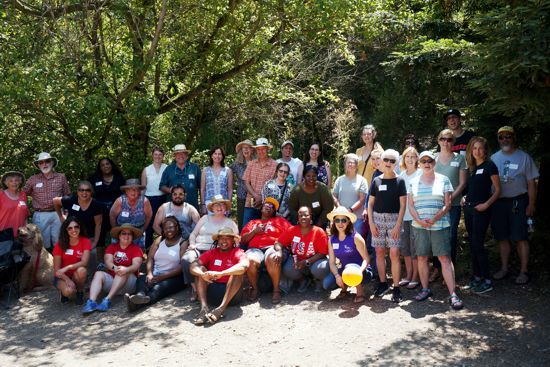Make a Difference by Helping Foster Youth as a CASA Volunteer
Make a Difference by Helping Foster Youth as a CASA Volunteer

Since it was established in 1987, the Alameda County Court Appointed Special Advocates (CASA) Program has promoted and supported quality volunteer advocates to speak for the best interests of youth in the dependency court system. CASA is part of a national nonprofit whose goal is to provide supportive services to children and families in the juvenile dependency court and foster care system.
Volunteer advocates are matched with individual children in the foster care system; there are 1,700 such children in Alameda County. CASA volunteers act as mentors, advocates, and support systems for the abused, neglected, or abandoned children who have become part of the dependency court system through no fault of their own.
"Being a CASA advocate is a very powerful role to have in the life of a child," says Jacqueline Espana, MPH, Recruitment and Outreach Coordinator for Alameda County CASA. "We see enormous impact, both for the youth as well as the volunteers. Our volunteers experience a lot of personal growth, which is a beautiful thing."
To become a CASA volunteer, community members complete a 30-hour training program and agree to a year of service. That may sound daunting but the advocate role requires only 10 to 15 hours per month, according to CASA. Nearly 35 Tri-Valley residents are currently volunteers, but many more volunteers are needed.
"Our wait list hovers between 40 and 50 children," says Espana, "and we have a goal to serve even more youth in the foster care system each year. We could use more volunteers from the Tri-Valley, especially men."
Among other things, CASA volunteers help youth navigate their bi-annual court dates, check in on their educational and employment goals, make sure their housing is safe, help them connect to community resources, and listen to their dreams. Volunteers themselves are part of a larger team working on behalf of foster youth.
"You are never alone in doing this work," says Espana. "You are connecting to the entire team that surrounds that youth so you can really make great strides with that youth if you are communicating well with their child welfare worker, their attorney, potentially a therapist, or a school teacher and together helping that child achieve their goals."
The support that CASA volunteer advocates provide in a few hours each month has an outsized impact on the future well-being of these children. "CASA volunteers are often the only unpaid people in their lives," says Ginni Ring, CASA Executive Director. "Our volunteers are able to see these children as individuals. They help them feel self-worth and achieve their goals."
Experienced CASA volunteers known as Peer Coordinators supervise other volunteers. One such Peer Coordinator lives in Livermore and coaches five other CASA volunteers who meet monthly at her home. If a group of people from the Tri-Valley wanted to come to a training together and become volunteers, they would ultimately have convenient, nearby support.
CASA is a member of the Tri-Valley consortium of faith communities and nonprofits called the Foster Care Collaborative Cohort. The Cornerstone Fellowship faith community in Livermore works closely with CASA. The church donates monthly to CASA and recruits CASA volunteers via its website, workshop events, and word of mouth.
People who want to support CASA but are unable to volunteer can follow Cornerstone's example and donate directly to the organization. CASA also holds an annual fundraising event each spring.
For more information about the Alameda County Court Appointed Special Advocates Program, please visit www.casaofalamedacounty.org.




